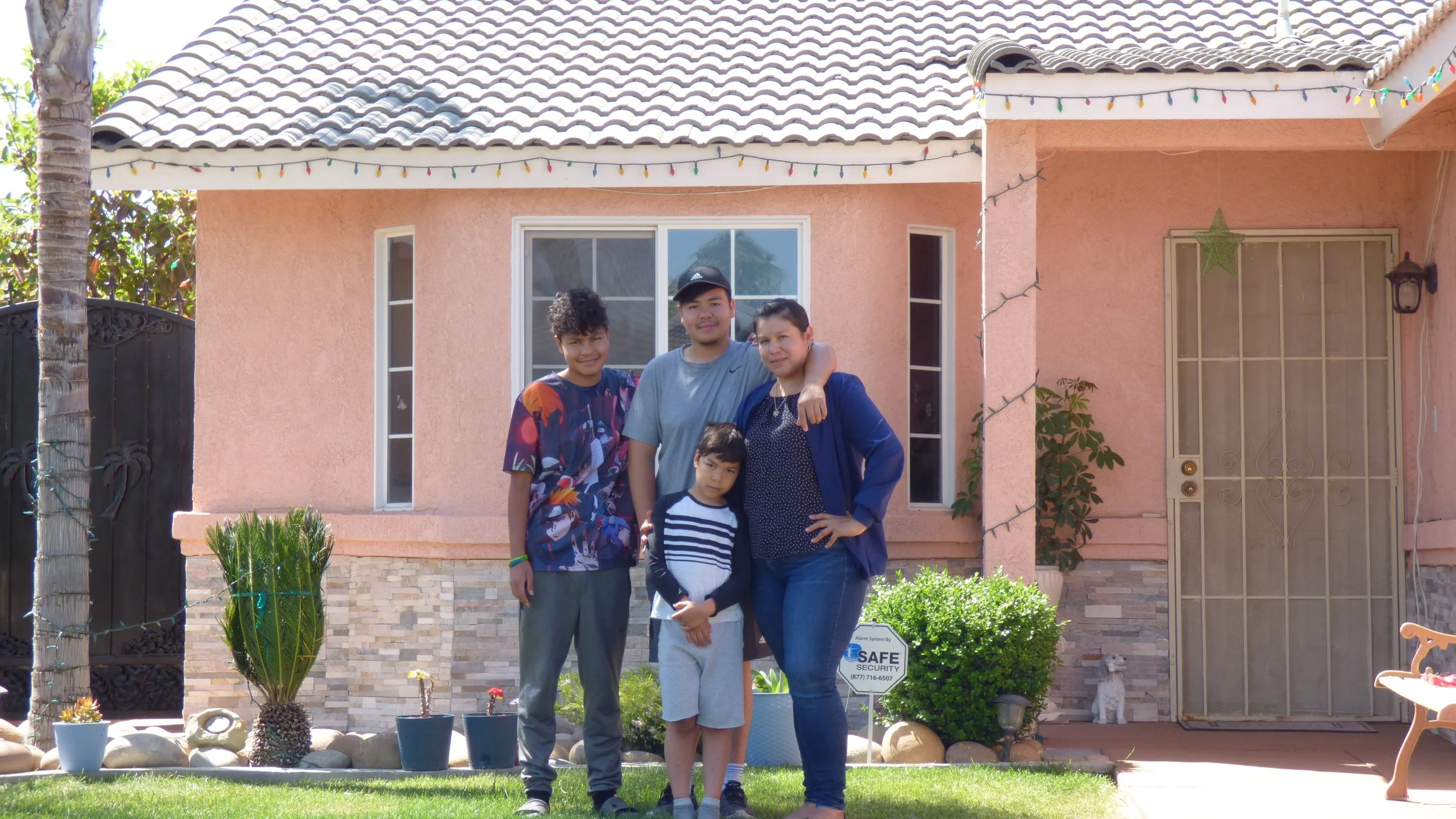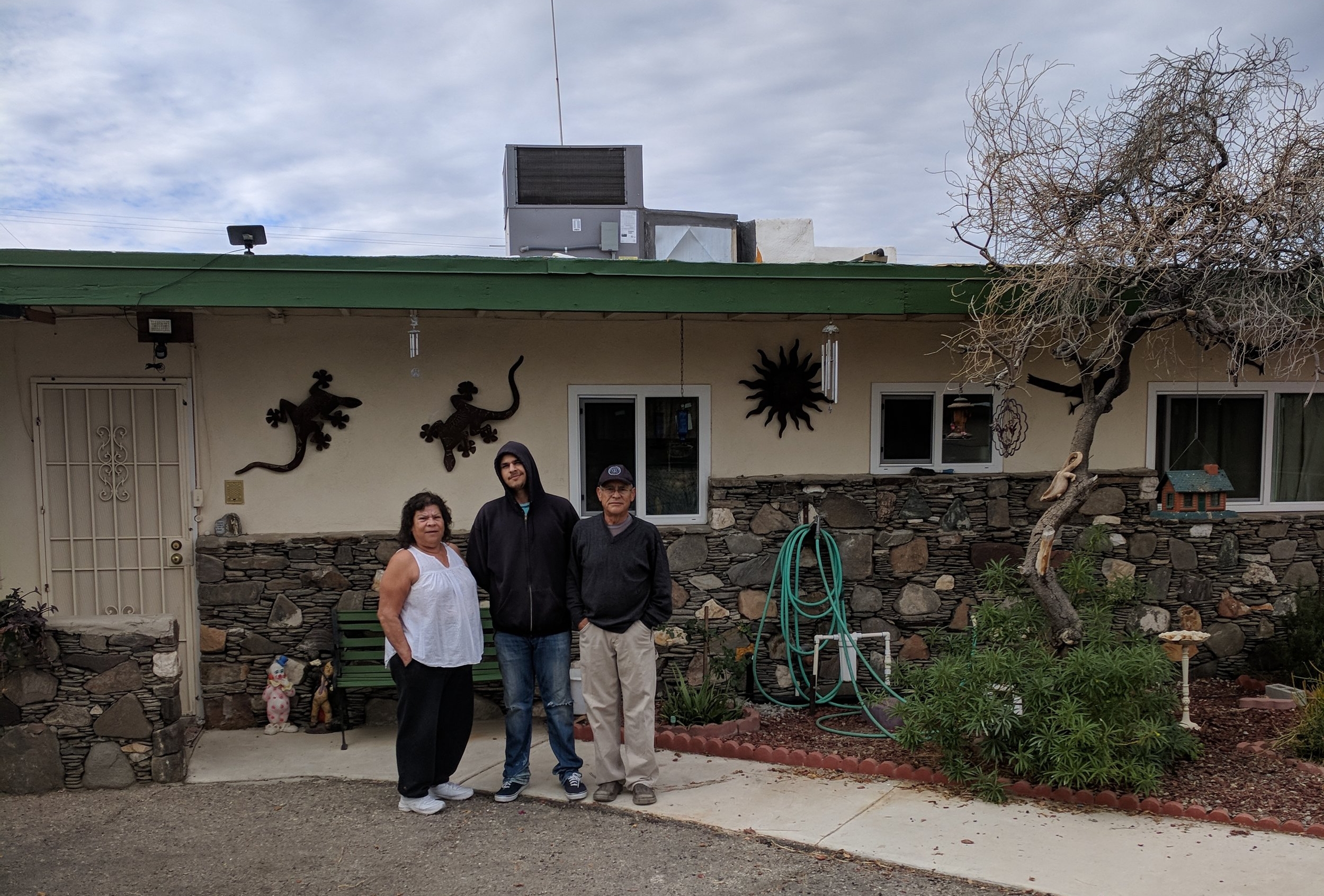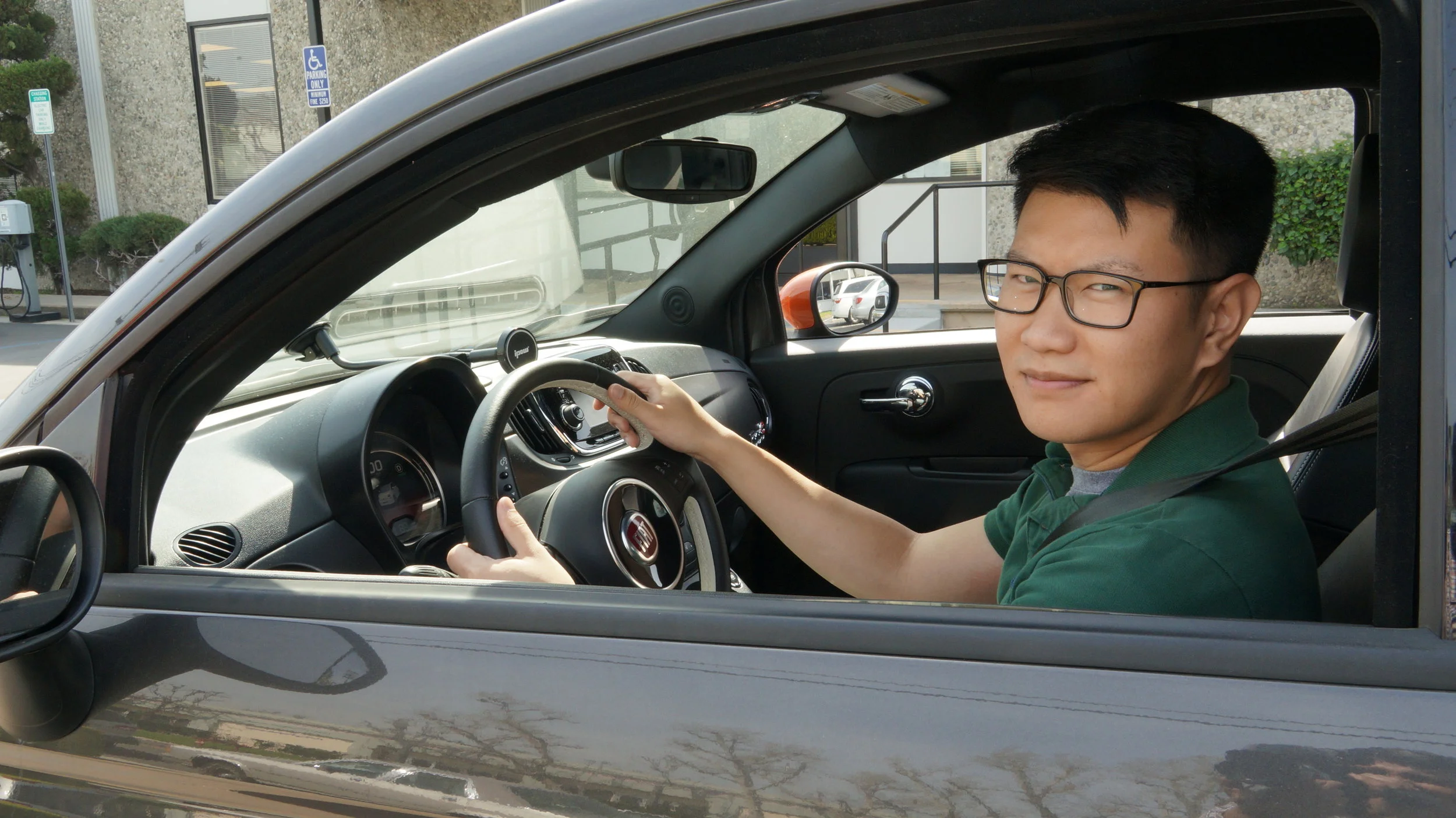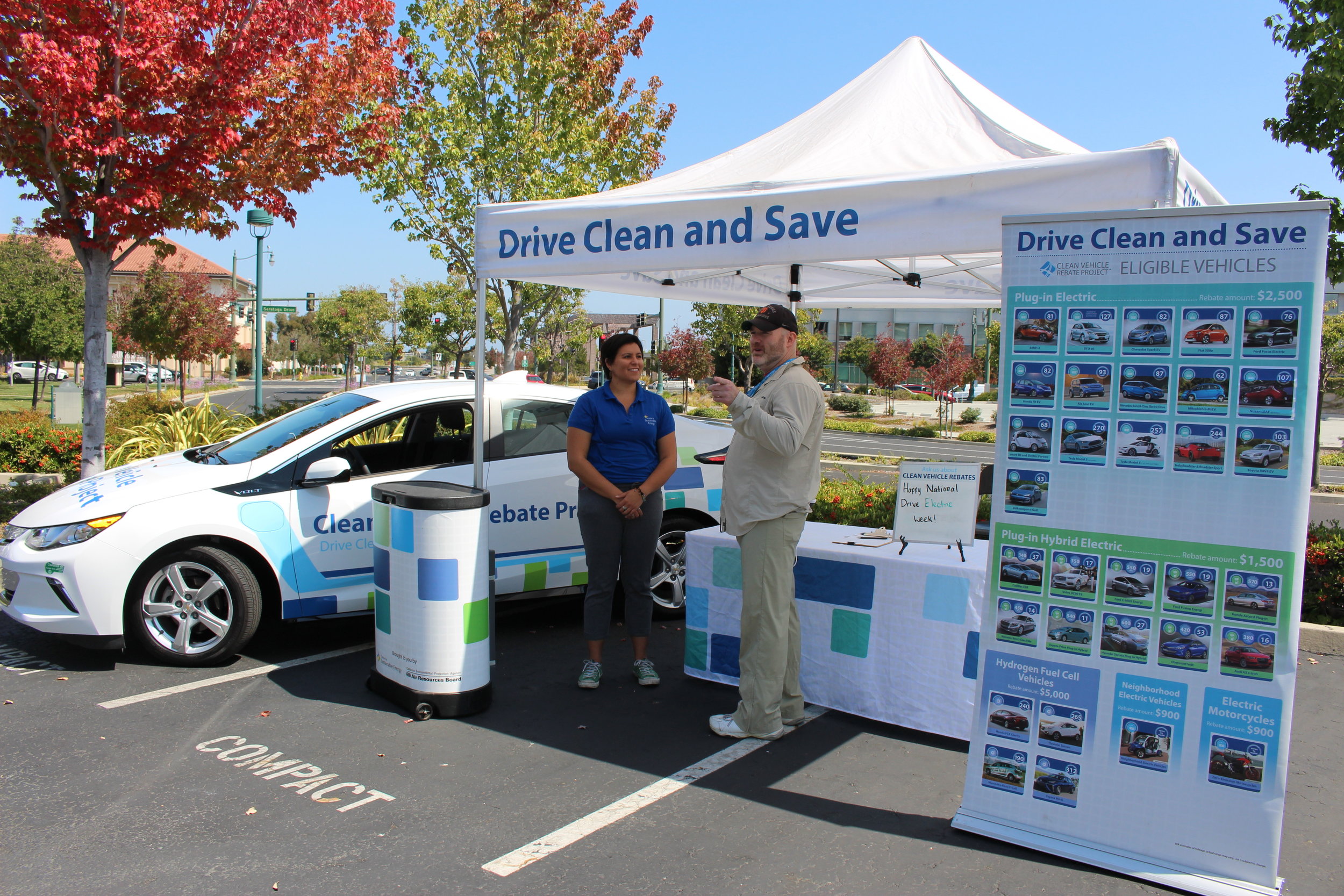In 2020, Sarah Light, agronomy advisor at the University of California Cooperative Extension, partnered with the Colusa County Resource Conservation District, Davis Ranch, Richter Ag, and the United States Department of Agriculture Natural Resource Conservation Service to apply for a CDFA Healthy Soils Program Demonstration Grant. The team received $99,832 of grant funding to conduct a demonstration project on cover crops on two fields in the Sacramento Valley from fall 2020 to spring 2024.
Energy Upgrades for Farmworker Household Brings Safety, Comfort, and $3.00 Energy Bills
Thanks to funding from California Climate Investments through the Low-Income Weatherization Program (LIWP), Rocio Hernandez and her family reduced their home energy costs by installing a new rooftop solar system and energy efficiency upgrades. At first, Mrs. Hernandez thought the referral flyer her husband brought home after work as a seasonal farmworker during the grape harvest in Delano was too good to be true. A local farmworker agency provided information about the LIWP Farmworker Housing Component, a California Climate Investment program focusing exclusively on the installation of energy efficiency measures and solar photovoltaics (PV) to reduce greenhouse gas emissions for farmworker households at no cost.
Woodstove Replacements Heat Homes in Butte County
More than 54 Butte County households have replaced their old woodstove or stove insert with a new, cleaner alternative that heats their home, improves indoor air quality, and reduces emissions of greenhouse gases, harmful particulates, and black carbon, a particularly potent climate pollutant, thanks to vouchers provided by the Woodsmoke Reduction Program. Among the residents who have benefitted from the program are Dennis and Deb, who replaced their 1979 woodstove insert, and Riki, who replaced the woodstove that came with their farmhouse, built before 1900.
Launching a New Capacity Building and Community Empowerment Project
The Partners Advancing Climate Equity (PACE) pilot program is a capacity-building program administered by the California Strategic Growth Council and funded by the Greenhouse Gas Reduction Fund. The year-long pilot program began in 2021 and supported 22 participants – all local leaders deeply rooted in their communities across the state – and sought to increase their ability to advance equitable and community-driven climate solutions.
Woodsmoke Reduction Program Provides Efficient and Cost-Effective Heating
San Gabriel Residents and Businesses Save Water and Energy with Appliance Rebates
No-cost Energy Upgrades Serve Low-income Farmworker Households
Mrs. Rojas and her family now have a solar photovoltaic system and energy efficiency upgrades in their home, including a high efficient air conditioning system, new windows that minimize heat transfer, a smart thermostat, and other measures that reduce energy costs while improving the comfort and livability of their home and its resiliency to climate change.
Energy Efficiency and Solar PV System Brings Comfort and Affordability to Mecca Household
For years, Irma Vargas’ family of four struggled to pay the high utility bills that come with living on the north shore of the Salton Sea in Mecca while still maintaining a comfortable and healthy home for their children. The family’s limited income made the $400 per month bill nearly impossible during the summer months when temperatures can exceed 110°F in their Riverside County community.
Clean Vehicle Rebate Project Jumpstarts Zero-Emission Vehicle Adoption
Car shoppers in San Diego can now get pre-approved before they purchase or lease an EV and then transfer the rebate amount directly to the dealership rather than applying for the rebate after the transaction. In just a few simple steps, the car dealership can claim the transferred rebate and use it to lower the customer’s down payment.
Rebates Expand Access to Clean Vehicles
Clean cars are a cool and growing trend in California. Each month, California moves closer towards its goal of five million ZEVs by 2030 – with more than 367,000 on the road as of February 2018. This trend is happening as more drivers, like Jimmy Chang, become aware of the benefits clean vehicles bring to the environment and to their pocketbooks, and learn about the programs available to make cleaner vehicles more to accessible to all Californians.
Rebates Expand Community Access to Clean Vehicles
The State’s Clean Vehicle Rebate Project (CVRP), which is now primarily supported by Cap-and-Trade dollars, promotes clean vehicle adoption by offering rebates of up to $7,000 for the purchase or lease of new, eligible zero-emission vehicles, including electric, plug-in hybrid electric and fuel cell vehicles. Eligible California residents can follow a simple process to apply for a CVRP rebate after purchasing or leasing an eligible vehicle.
Training the Next Generation of Energy Efficiency Professionals in Sacramento
Engaging Diverse Audiences Through the Student Ambassador Program
Volunteering as a Student Outreach Ambassador
Weatherization & Solar PV Project Benefits Low-Income Sacramento Residents
After facing increasingly unaffordable energy bills year-after-year, Milton, a Sacramento County resident, learned about the State’s low-income solar program offered through the Sacramento Municipal Utility District (SMUD). He became interested in the program and was one of many residents that benefited from this assistance
Clean Cars 4 All Vouchers Support Low-income Bay Area Households
Replace Your Ride Program Helps Californians Get into Clean Vehicles
Incentives Help Replace Old, Polluting Vehicles with Clean Cars
Financing Pilot Program Opens Doors to Clean Car Ownership
Marie Deer, an Oakland resident, went from not having a car to acquiring a pre-owned 2015 Honda Insight, a hybrid vehicle that she was able to afford through a financing assistance program available to low income Bay Area residents who live in disadvantaged communities most impacted by air pollution.
Energy Efficiency Measures Bring Savings and Comfort to Orange County Residents
Jose, a senior citizen whose home is located in Southern California, was having difficulties paying his electricity bill. The final straw came one day in April 2016 when he received a notice from Anaheim Public Utilities stating that his electricity service would be disconnected if he did not pay his overdue balance of $292.57 by close of business—a situation that led him to seek assistance.






















